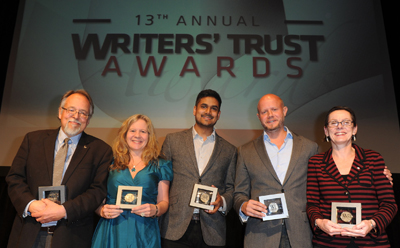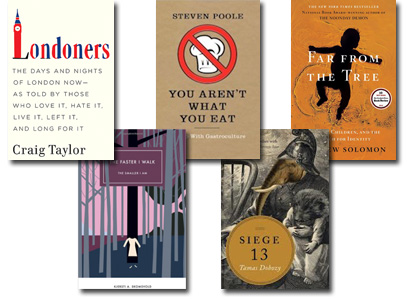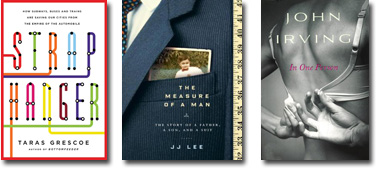’tis the year of discord among prize juries, we are told.
With the Rogers Writers’ Trust Fiction Prize, Scotiabank Giller Prize and Governor General’s Literary Award for English-language Fiction lists all out, the verdict came in: an almost unprecedented level of dissenting opinion between the three juries threw Canada’s literary awards season into disarray. Or possibly into ambivalence, if one can be “thrown” into ambivalence (today’s “Guessing the Giller” article in the Globe & Mail might as well have been titled “Meh”).
“The Year of Discord Among the Literary Experts,” said the Globe & Mail on Oct. 2, noting that, “the divergence of opinion among literary experts contrasts with the solidarity that occurred last year.”
An “almost unprecedented number of 12 different books have been selected by various juries and committees,” said the Toronto Star on Oct. 26.
Really? Or is it just that last year’s lists were so dominated by two names in particular that it gave the illusion of the awards being a race between only those two books?
As the publicist for the Rogers Writers’ Trust Fiction Prize it was my great pleasure to work with Patrick deWitt and Esi Edugyan (the two shortlist-dominating authors in question) in 2011. What was frustrating about last year though was that the noise surrounding those two names was such that the other nominees (there were nine of them, by the way) found themselves a little drowned out. By contrast, the 2012 shortlists with their lesser (but, see below, not by as much as you’d think) accord provide, instead of one big story, many smaller ones. And isn’t that what literary awards are here to do? To re-open the window of publicity for those authors short- and long-listed for them?
The configuration this year is different, but the stats not so much.
The Breakdown (Canadian shortlists only – I’m not including the Booker):
- In 2011, 11 out of a possible 16 books were shortlisted.
- In 2012, 12 out of a possible 15 books were shortlisted.
- In 2011, 3 books were nominated for multiple awards.
- In 2012, 3 books were nominated for multiple awards.
One notable difference: in 2011, two books were nominated for all three awards (and hence became major noise-makers), whereas in 2012 none were.
Because the Giller had a six-book shortlist in 2011 it messes with the numbers a little, but let’s assume that a five-book shortlist in 2011 would have omitted Better Living Through Plastic Explosives (by all accounts the outsider), which didn’t appear on any other lists. That would still leave us with 11 books out of a possible 15 in 2011, versus 12 books out of a possible 15 in 2012.
Conclusions
- The same number of books appeared on multiple lists in 2012 as in 2011
- The total number of books shortlisted across the combined lists in 2012 is only one higher in the year of disagreement than it was in the year of accord.
- The same number of books (3) appeared on multiple lists in 2011 as in 2012.
- Book people are bad at math. But I think we already knew that.
As Mark Twain said, “There are three sorts of lies: lies, damn lies, and statistics.” 2012 may be the year of discord among the literary judges or it may be the year that award recognition managed to sprinkle some fairy dust on a greater number of books than in 2011.
Good luck tonight (Giller nominees), on Nov. 7 (Writers’ Trust nominees), and Nov. 13 (GG nominees) to each and every one of this year’s literary dozen.
(with thanks to @ebcameron for swiftly pulling together these stats)



